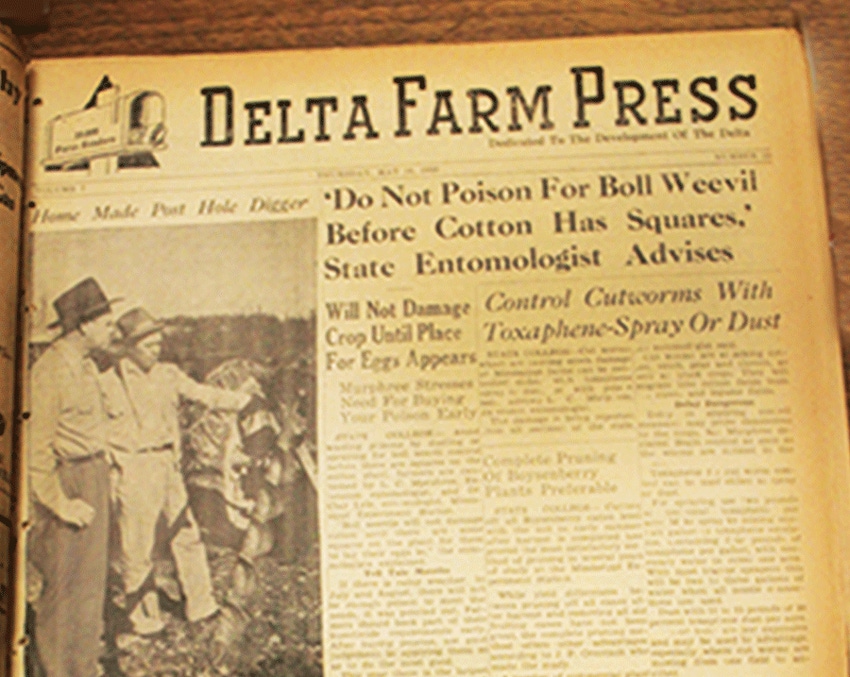
This week’s Delta Farm Press contains a special 40-page section commemorating the 75th anniversary of the publication, which began in 1943 as a 4-page supplement to the Clarksdale, Miss., daily newspaper.
That it would be around 75 years later, and have become a publishing enterprise that covers the entire Sunbelt, is something nobody could have foreseen.
Agriculture — and publishing — have had their ups and downs in the past three quarters of a century, but both have met the changes, embraced new technologies, and are continuing to adapt to the demands of the marketplace that have come about with the rise of the internet and all content all the time.
I never thought, when I took a job with Delta Farm Press going on 44 years ago, that I would last a year. I figured I’d either get fired by a publisher known for giving the heave-ho to editors who didn’t meet his demanding expectations, or I’d decide agricultural journalism wasn’t my cup of tea and return to the “real” newspaper world.
The changes in agriculture that have taken place over the past 75 years have been nothing short of astounding. Even when I came aboard in late 1973, farm machinery and methods were pretty primitive compared to today’s technology-driven agriculture.
We ain’t seen nothin’ yet. The agriculture knowledge base is proliferating almost exponentially, giving farmers better tools and methods to help them in their chosen mission of feeding the world.

Who could have imagined, even then, the advances in varieties that not only have weed, insect, and disease control built into the seed, but also produce better quality and yield? And thanks to gene editing, even more remarkable traits are coming.
Who could’ve dreamed a tractor or combine that drives itself across the field, or a planter so precise it adjusts for seed depth and placement on the fly, or technology that lets a farmer in his office see, in real time, what his combine or picker is doing in a field miles away, or a hand-held device with far more computing power than in the spacecraft that took men to the moon and back in 1969, and with which farmers have instantaneous access to production information, markets, plus communication in myriad forms?
And we ain’t seen nothin’ yet. The agriculture knowledge base is proliferating almost exponentially, giving farmers better tools and methods to help them in their chosen mission of feeding the world. Researchers and specialists at Land Grant institutions and in the private sector continue not only discovering more about the crops farmers grow, they’re also analyzing and refining farming practices to find ways to help them be more efficient and more productive, while using less water, fertilizer, and chemicals, and reducing even more their impact on the environment.
Despite the stridency of anti-agriculture groups and an increasingly urbanized population with little or no knowledge of the realities of food/fiber production, one thing remains unchanged from the time the first seeds were planted by the pilgrims: the indomitable spirit of the American farmer.
Farmers are the eternal optimists: investing money, work, knowledge, experience, long hours, in planting a crop that must face the vagaries of weather, pests, uncertain markets, all in the hope that at the end of the season, harvest in, there will be enough in the bins and bales to pay the bills and have enough to do it all over again next year.
From Delta Farm Press’ inauspicious beginning 75 years ago, Mid-South farmers have embraced it and made it a part of their lives. For that, we offer a heartfelt “Thank you."
Now, on to 100…
About the Author(s)
You May Also Like




